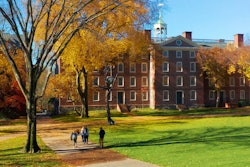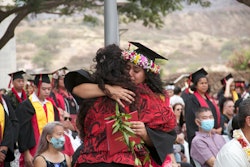As it begins its third year, the White House Initiative on Asian Americans and Pacific Islanders (WHIAPPI) plans to expand its reach into more communities in need of federal programs and protections, officials say.
Those efforts will build upon those by the Initiative in helping to create and implement plans improving AAPI access to educational, health and economic services.
WHIAAPI executive director Kiran Ahuja notes that, when President Barack Obama re-established the Initiative and the President’s Advisory Commission on Asian Americans and Pacific Islanders in October 2009, “we didn’t just face a small hill of problems, we faced a massive mountain of challenges. But we’ve clearly started to climb and make real progress for people across the country. We’ve opened doors for hundreds of thousands of people who need programs and services now more than ever.”
In furtherance of that cause, Ahuja, WHIAAPI co-chair Chris Lu, federal officials and Advisory Commission members are convening a town hall meeting Friday in Henderson, Nev., to discuss the Obama administration’s efforts to create jobs, strengthen small businesses, support home ownership and expand housing opportunities. About 235,000 AAPIs around the country have been out of work for more than six months, according to the WHIAAPI. Meanwhile, one in 10 Nevadans is of Asian or Pacific Islander descent, and mortgage foreclosure and unemployment rates across-the-board in that state remain among the highest nationally.
Other WHIAAPI events this month include:
* Also on Friday, an online town hall meeting from Henderson targeting AAPI college students and young adults across the country. Participants can submit questions via Twitter using the hashtag #WHIAAPITownHall.
* An Oct. 28 conference in Washington, D.C., in which WHIAAPI co-chairs Lu and Education Secretary Arne Duncan, researchers, policy analysts and California state Assembly member Mike Eng will examine and consider new data collection methods for securing information from AAPI communities about their life needs. For years, language barriers have impeded data collection, whether through telephone, mail or in-person surveys. And only in recent years have bureaucracies begun to gather ethnic-specific details, which can show income, health and education disparities among subgroups as varied as Filipino Americans, South Asian Indian Americans, Chinese Americans and native Hawaiians.
* An Oct. 29 Bullying Prevention Summit in New York City to examine bullying and harassment issues that disproportionately harm AAPI and Muslim American populations. Educators, students, parents and business leaders, in addition to WHIAAPI officials, are expected to participate in the discussions.
For two years, the WHIAAPI has gathered input from tens of thousands of AAPIs on various issues at more than 200 roundtables and open dialogue sessions in 50 cities across 23 states. In partnership with other federal agencies and executive offices, the WHIAPPI has subsequently, for instance, helped increase the ranks of AAPI teachers through recruitment drives in Los Angeles and Seattle earlier this year, increase the number of government publications and resources in more languages and launch a mentoring program to raise the numbers of senior- and mid-level AAPI managers in government.
The WHIAPPI also supported the Education Department in increasing the number of Asian-serving colleges receiving federal grants to expand programming for underserved AAPI students. Such students make up at least 10 percent of these postsecondary institutions, and, in 2011, the number of grant-funded colleges rose from 10 to 18 across the mainland, Hawaii and the U.S. Pacific territories.
In addition, the WHIAPPI has gotten involved in large-scale disaster relief. In the aftermath of last year’s BP oil spill off the Gulf Coast, the WHIAAPI advised an interagency disaster response team on how to best assist AAPI people there, such as Vietnamese American fishermen and shrimpers, who, like other communities of color in the region, have historically lacked infrastructure to turn to in a crisis. In the days before Hurricane Katrina flooded New Orleans in 2005, for instance, many Vietnamese residents chose to drive five hours or more to Houston, home of one of the largest Vietnamese communities nationally, seeking shelter.





















